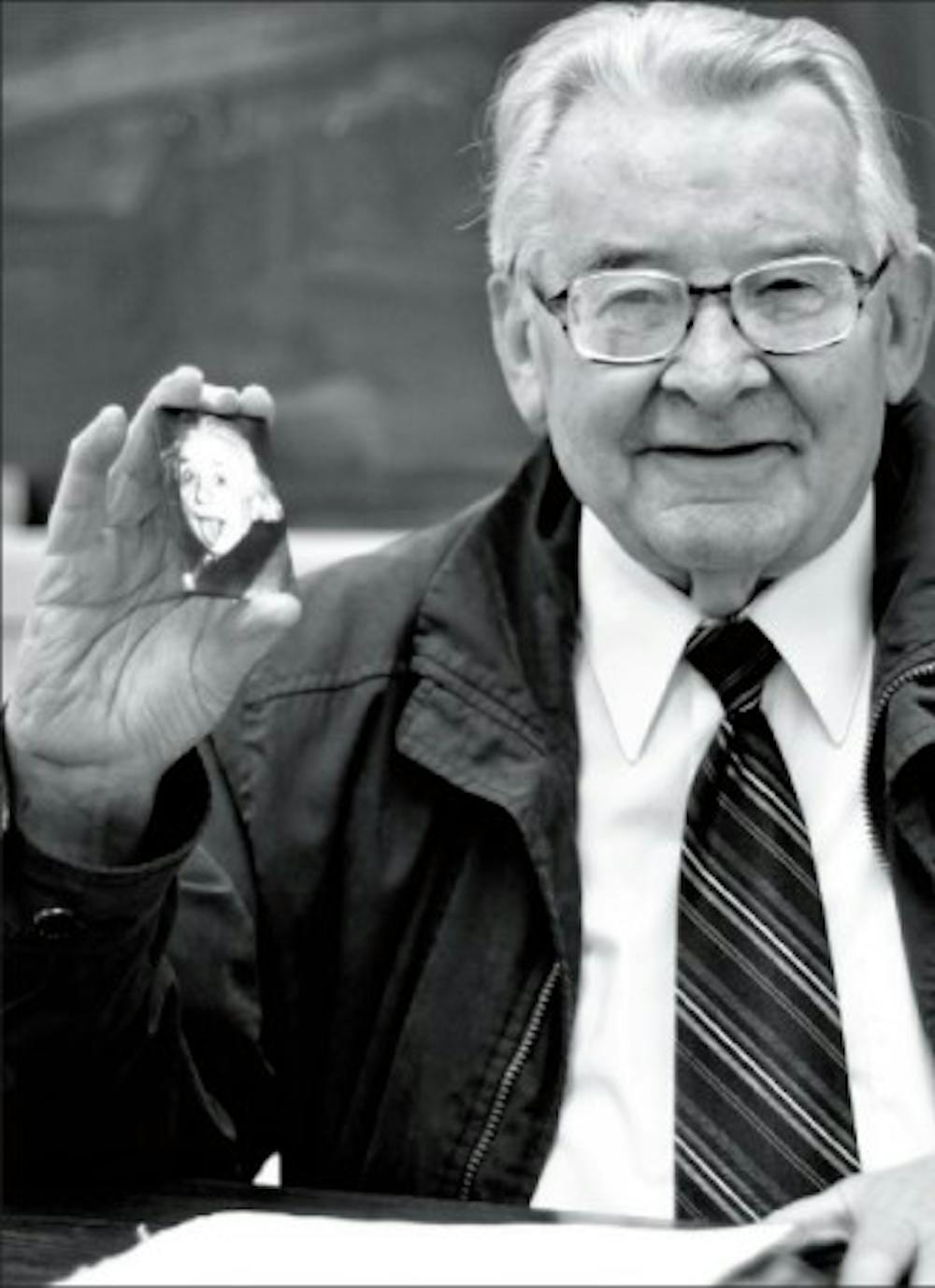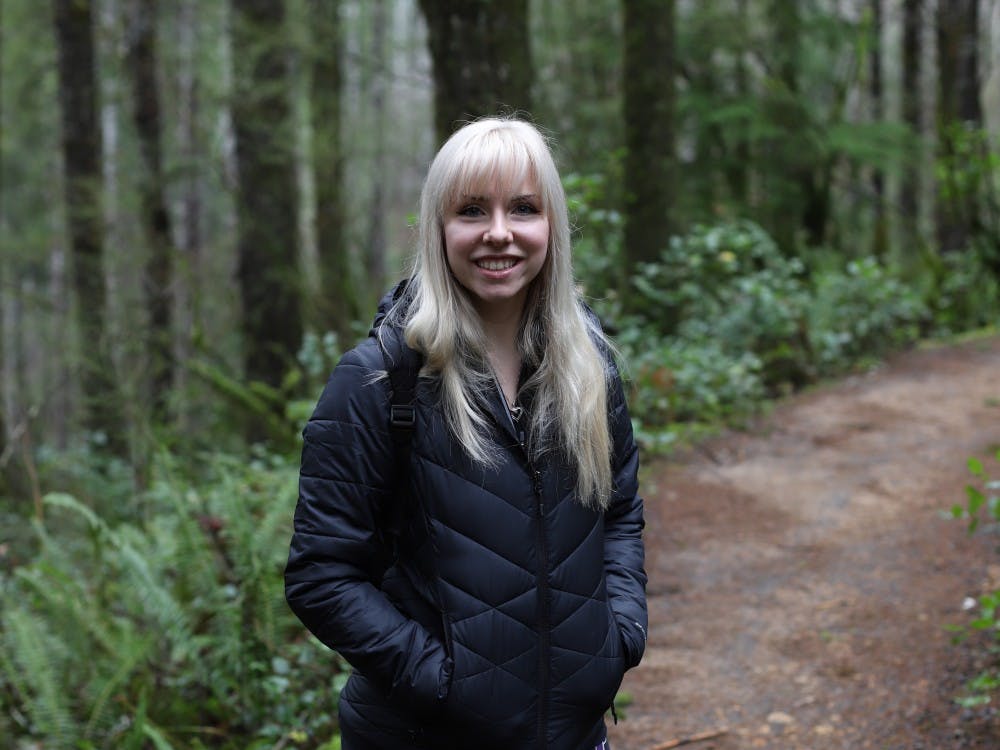(Bryan Brenize -- The Beacon)
By Jocelyne LaFortune, Staff Writer -- lafortun12@up.edu
When Albert Einstein stuck out his tongue at a reporter, he reminded the world that he was just another guy.
Professor of philosophy Franz Mayr keeps a magnet bearing Einstein's famous picture in his pocket to remind himself that he too is just another average human being.
However, some might beg to differ.
"Franz Mayr is a world class philosopher," philosophy professor Richard Askay said. "He could have taught anywhere in the world."
Mayr and Askay worked together for eight years translating the Zollikon Seminars, a series of philosophical seminars by the German philosopher Martin Heidegger.
"I learned more from him in those eight years than I did in graduate school," Askay said. "He is extremely gracious and selfless in sharing the wealth of knowledge he possesses."
Mayr was born in Linz, Austria and grew up in an old farmhouse overlooking the Danube river valley.
"I have always felt lucky in my life," Mayr said. "I had a very happy childhood with much freedom on the farm." When he was 10 years old, Mayr entered gymnasium, which is an eight-year school program attended by European students. He began learning Latin and Greek, and, according to him, excelled in all of his subjects.
"I was always best or second best in gymnasium," Mayr said. "I loved learning, although I hated chemistry." After finishing at gymnasium, Mayr went on to study physics and mathematics at the University of Innsbruck in Austria. However, he quickly became bored and changed his studies to philosophy and theology, despite pressure from family members to continue with physics.
After receiving his Ph.D. in philosophy at age 23 from the University of Innsbruck, Mayr got a job working as a research assistant for Karl Rahner, an influential Jesuit priest.
During this time, Mayr went to law school in Innsbruck. He continued his research work with Rahner while attending classes at night.
Although he looks back fondly on his childhood, Mayr's life has not always been easy. His mother, who had a profound influence on his childhood, died when Mayr was 13 years old.
"I think my skepticism began when my mother died," Mayr said. "She was very imaginative and very influential for me."
Growing up in Austria during World War II was also difficult for the young Mayr. "My father was extremely anti-Nazi, and my mother's brother – my uncle – was part of the Nazi party," Mayr said. "There was much conflict because of this."
Mayr married his wife, an American, in 1968 in Innsbruck. Karl performed the ceremony. They now have two children and one grandson.
Mayr has published five books in German. Some of them have been translated into Spanish. He has also written and published many articles.
Although he is now technically retired, Mayr continues to teach Philosophy of Religion, an upper-division course.
"Dr. Mayr's classes are different because he expands them far beyond regular philosophy," junior Mark McGinnis said. "He makes it relevant and includes a lot of information from his own life, which is really interesting."








